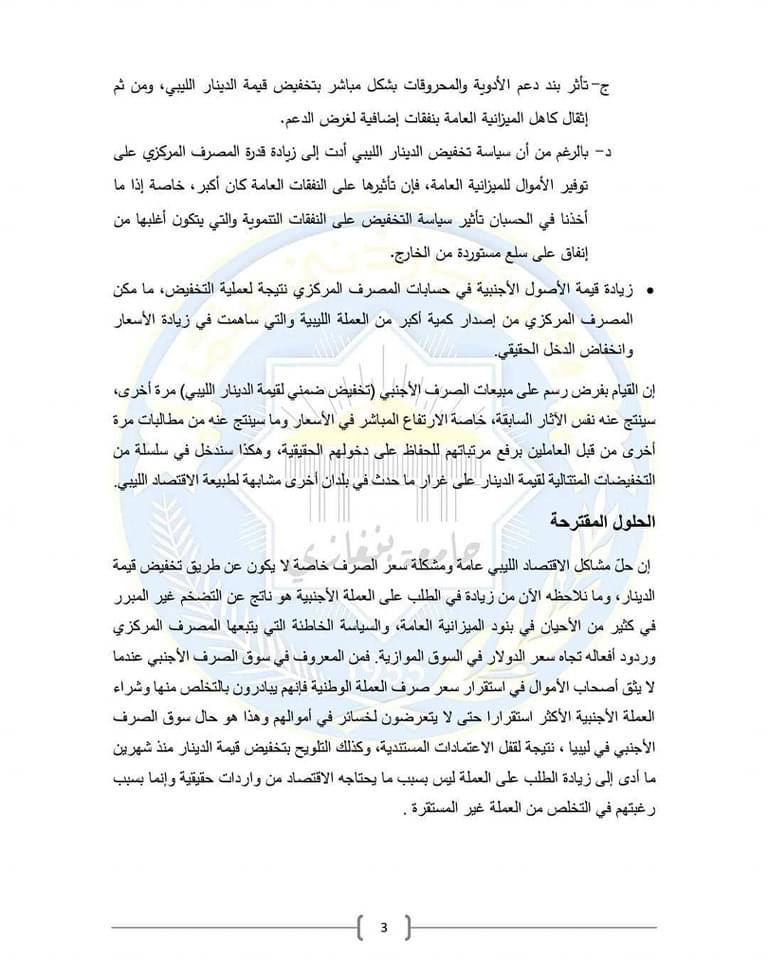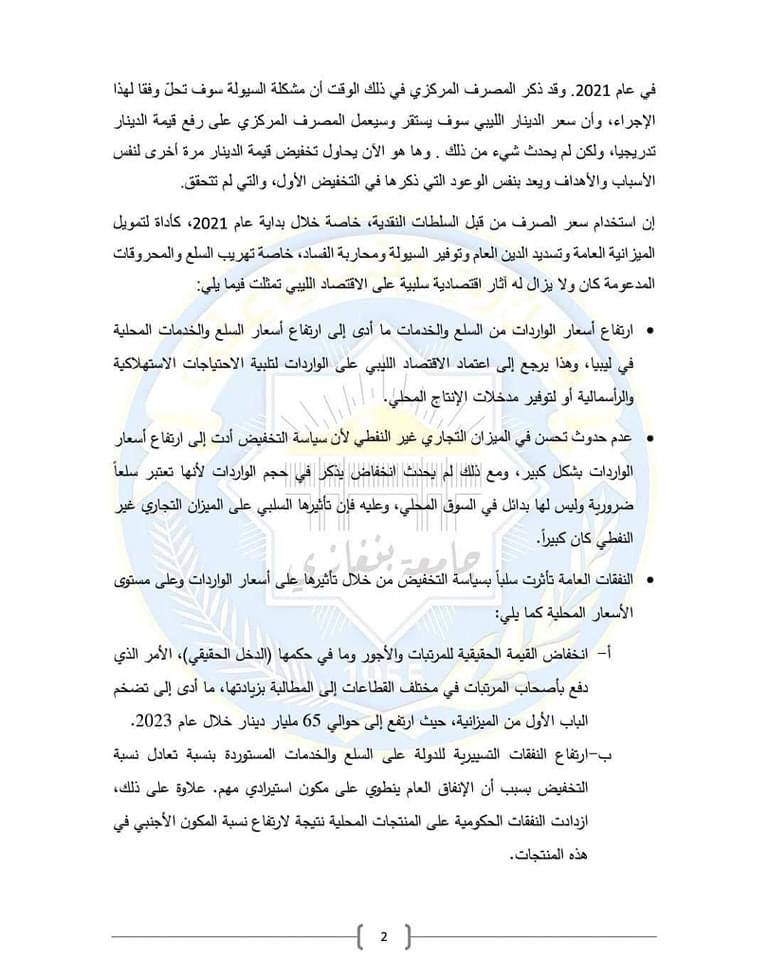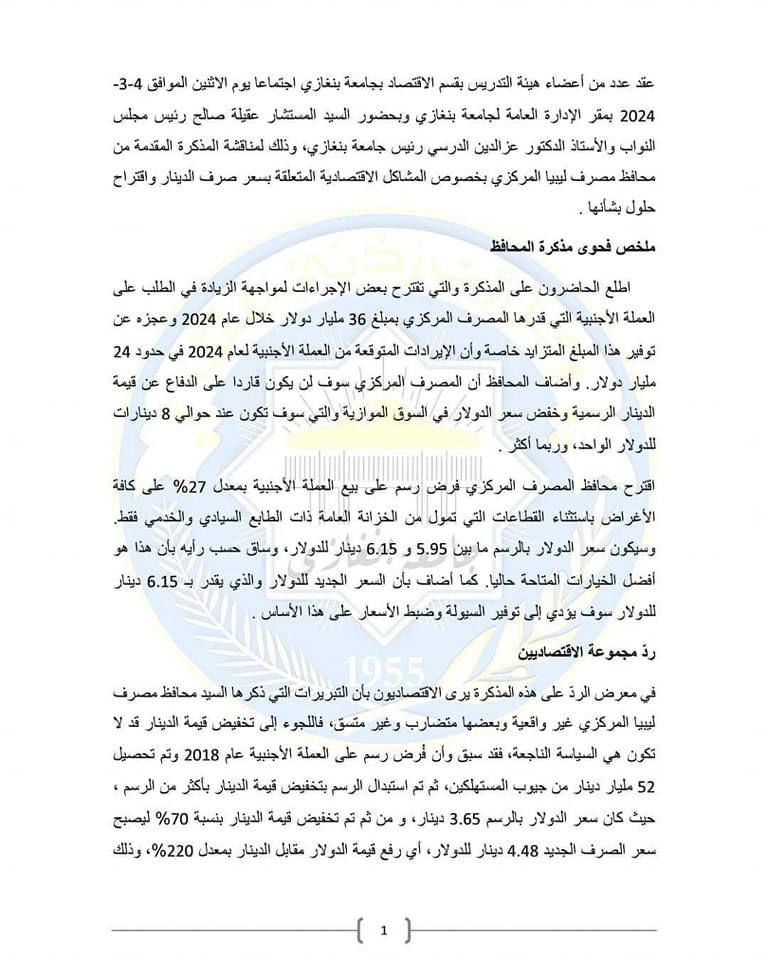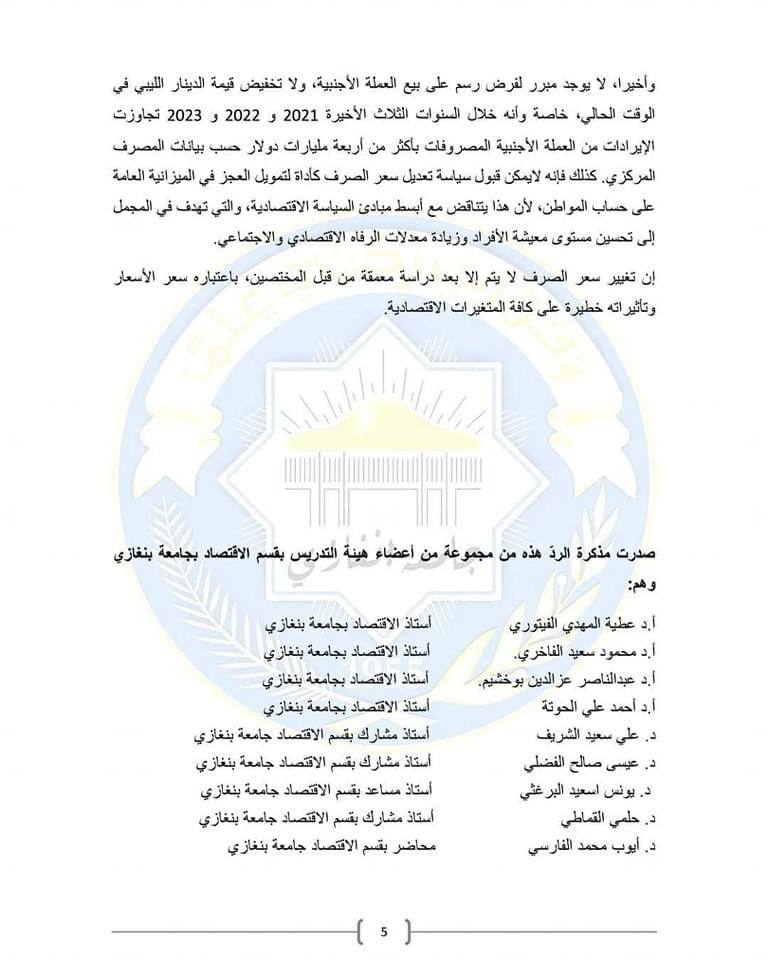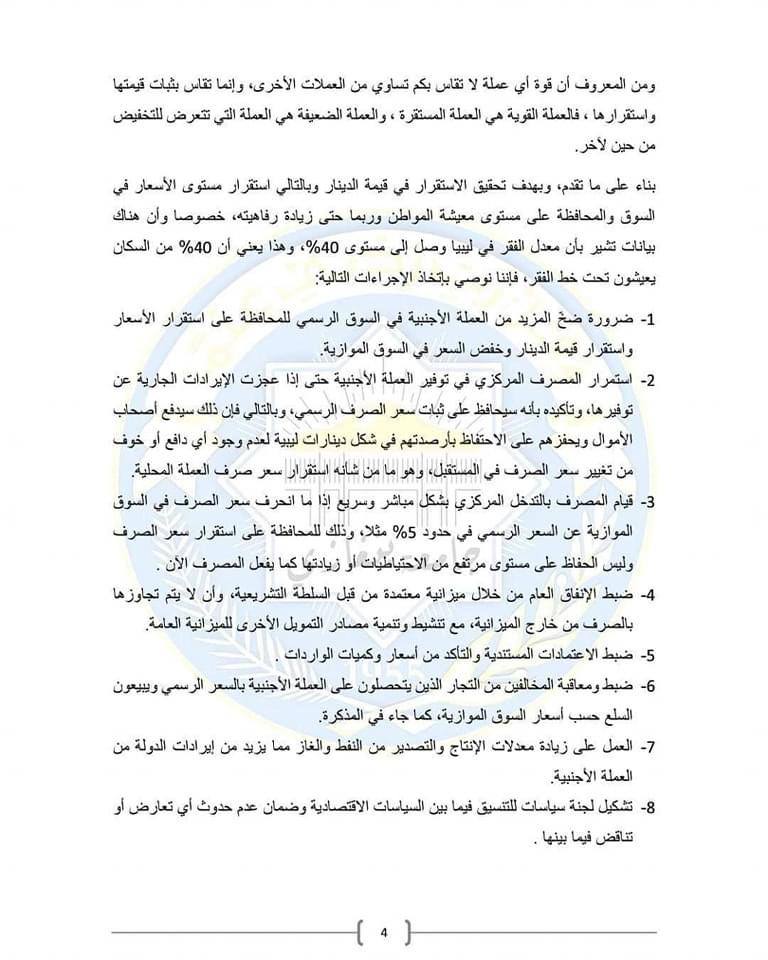Economists at Benghazi University Propose Solutions to Al-Kabeer’s Proposal Regarding Imposing a Fee on Foreign Currency Sales
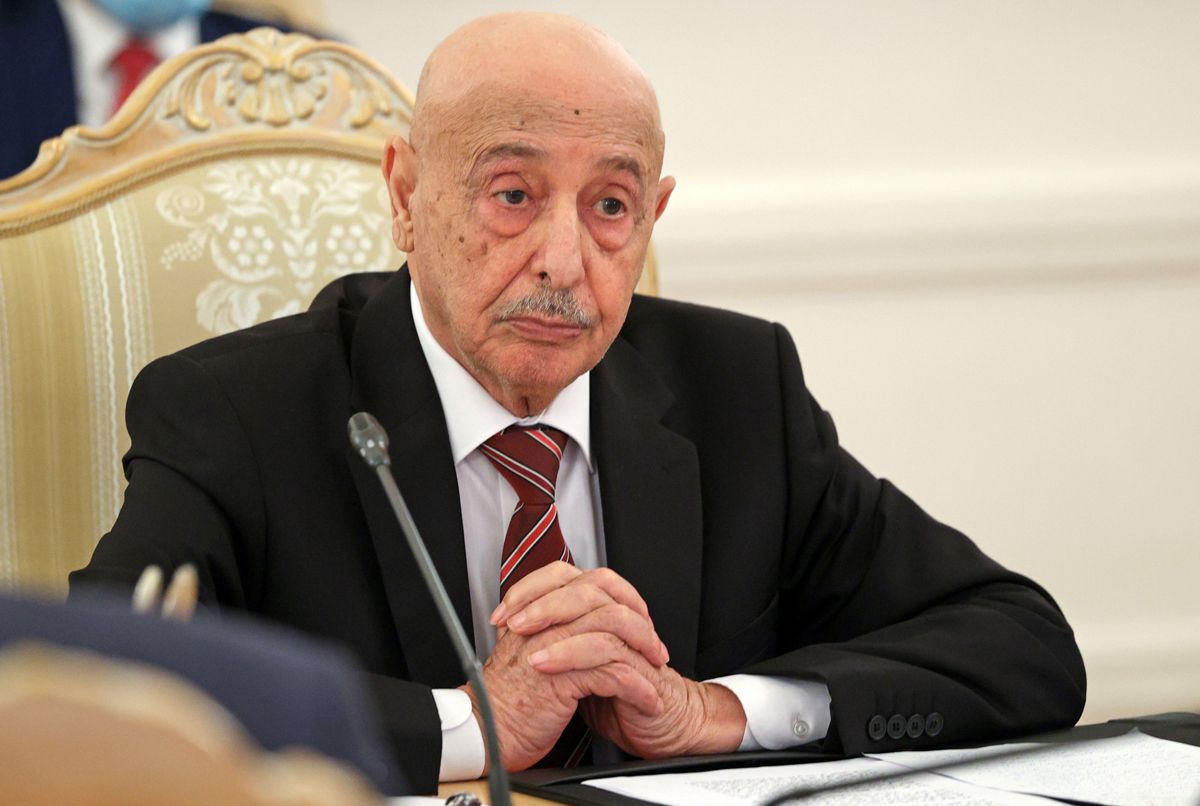
During their meeting with the President of the House of Representatives, Aguila Saleh, experts and economics professors at Benghazi University confirmed their response to a memorandum from the Governor of the Central Bank of Libya, Seddiq Al-Kabeer, regarding the proposed imposition of a fee on foreign currency sales. They stated that the justifications provided by the governor are unrealistic and that resorting to devaluing the Libyan dinar is not an effective policy.
The experts clarified in their response that in 2021, the Central Bank stated that the liquidity problem would be solved, the Libyan dinar’s exchange rate would stabilize, and the Central Bank would gradually raise the value of the dinar. However, nothing of the sort has happened, and now they are attempting to devalue the dinar again for the same reasons and objectives, making the same promises as in the initial devaluation, which were not fulfilled.
The economists proposed solutions to Libya’s economic problems, aiming to achieve stability in the value of the dinar, preserve the citizens’ living standards, and possibly improve their well-being. They emphasized the necessity of injecting more foreign currency into the official market to maintain price stability. The Central Bank should continue to provide foreign currency even if current revenues cannot cover it. They assured that they would maintain the stability of the official exchange rate, which would encourage investors to retain their balances in Libyan dinars without any fear of future exchange rate fluctuations.
In addition to the solutions proposed by the experts, they suggested controlling public spending through a budget approved by the legislative authority and ensuring that it is not exceeded outside the budget. They also proposed revitalizing and developing other sources of financing for the general budget, controlling documentary credits, specifying import prices and quantities, increasing oil and gas production to boost state revenues in foreign currency, and forming a policy committee to coordinate economic policies and ensure no conflicts or contradictions between them.
The experts concluded in their response that there is no justification for imposing a fee on foreign currency sales or devaluing the dinar at the present time, especially after foreign currency revenues have exceeded expenses by more than 4 billion dollars over the past three years, according to central bank data.
